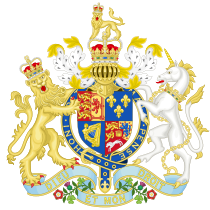The Taxation Act 1722 (9 Geo. 1. c. 18), is an Act of the Parliament of Great Britain, enacted in response to the Jacobite Atterbury PlotConspiracy named after Francis Atterbury, Bishop of Rochester and Dean of Westminster, aimed at restoring the House of Stuart to the throne of Great Britain. uncovered that year, a thwarted attempt to restore the Catholic Stuart dynasty to the British throne.[1] It imposed an extraordinary tax on the estates of all Catholics, to reimburse the public purse for the “great expense occasioned by the late conspiracies”, which became known as the Papists Tax.[2]
The Act was proposed by Robert Walpole, generally considered to be the first prime minister of Great Britain. Opponents argued that the “late conspiracies” had not been wholly Catholic,[2] and indeed Bishop Atterbury himself was a senior Church of England clergyman.[3]
See also
- Papists Act 1722Act of the Parliament of Great Britain requiring all Catholics who refused to accept the monarch as the supreme head of the church in England to register themselves and their estates with the authorities.

